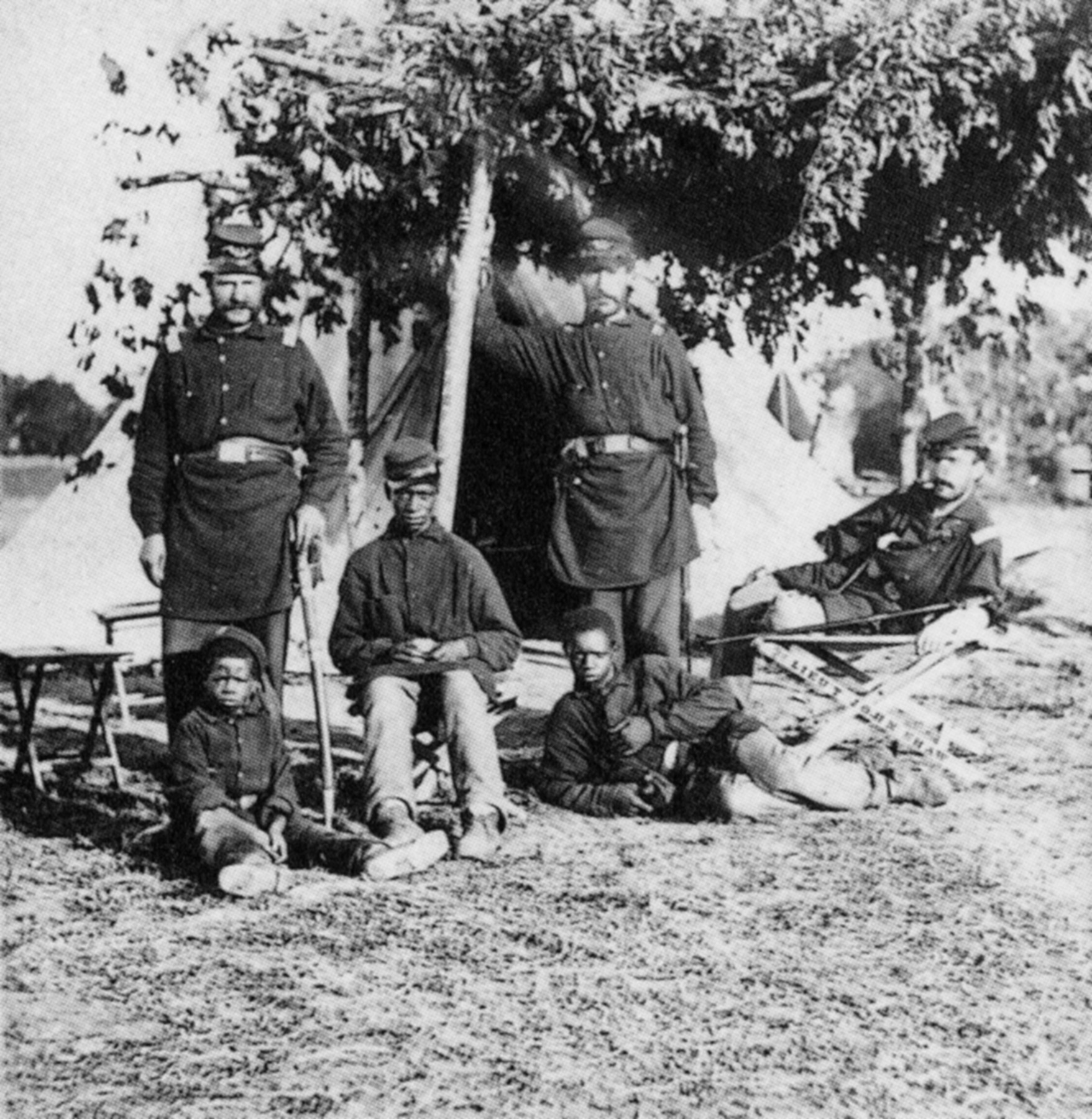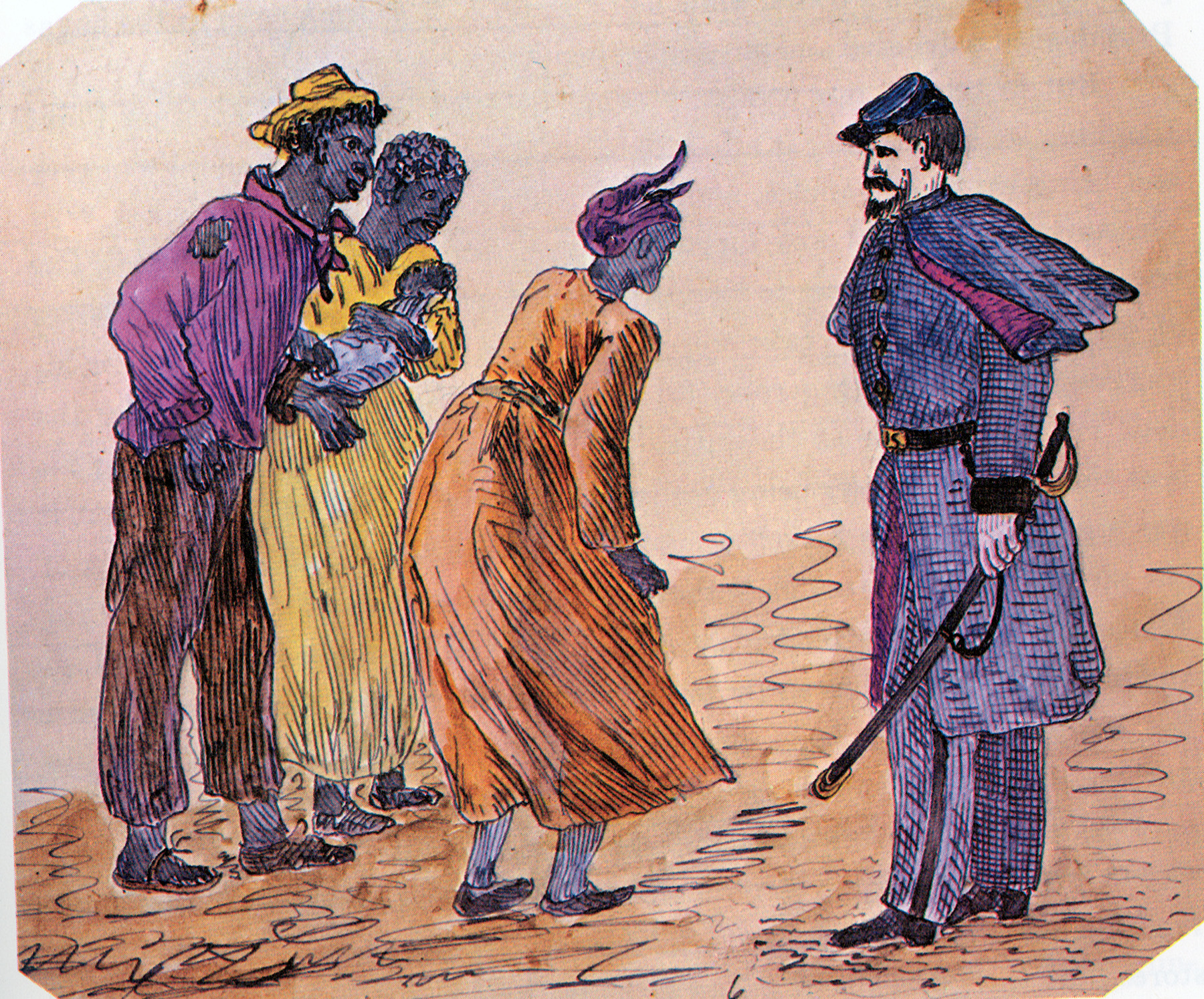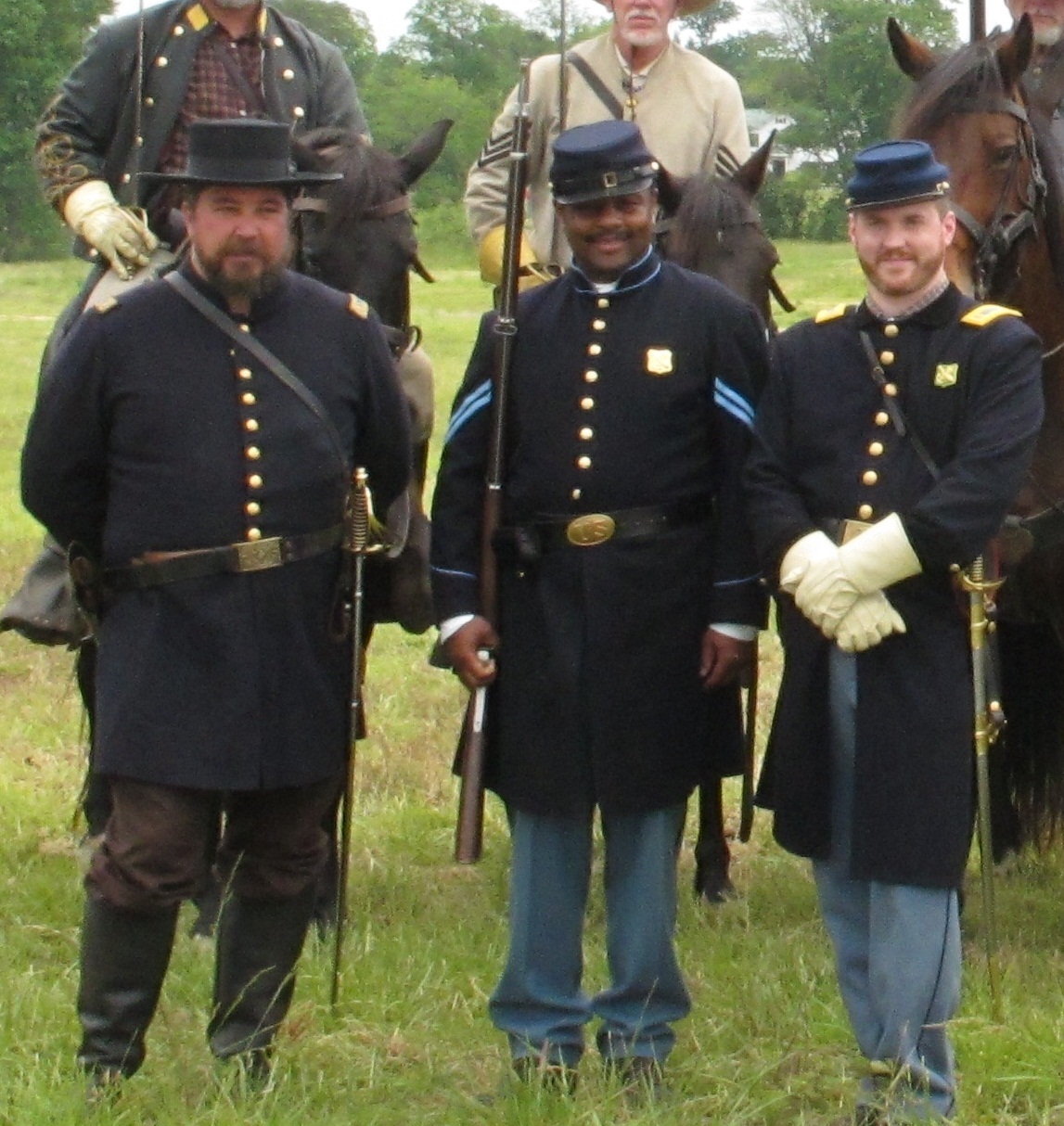African-Americans in the Civil War (Part 3)
Part three in a series.
African-Americans tried to enlist in both the Union and Confederate armies at the start of the Civil War. Although both armies reject black soldiers, by the end of the war over 200,000 men serve in the Union Army and Navy. In the Confederate Army at the end of the war, they had authorized black soldiers, but not the recent claims of hundreds of thousands of black soldiers.

I have found very few blacks that are listed on the rosters of the Confederate army, as soldiers or militiamen. Most of the ones that I found were from Louisiana and were mixed race, some often passing for white. Many blacks in Louisiana owned businesses and were well off. There are stories about black servants fighting for the South, but no blacks are given soldiers pensions – some are given pensions for being loyal to the Confederacy. However, the Louisiana Native Guard can say that they were approved as militia for the Confederacy, for the defense of New Orleans, but they eventually served in the Union Army.
When I came to the Park, I researched and talked with several historians about black Confederate soldiers. I am sure that there were some blacks that passed as whites that served in both armies and we will never know how many they were. Some blacks are listed in Confederate rosters as musicians. These men acquired Confederate uniforms and even Union uniforms (as did white Confederates from Union wounded and dead) some even acquired weapons. I have seen stories of some Union soldiers who said that black men fought on the side of the South. Even the books that I have read on black Confederates have said that these men were mainly slaves, servants, and musicians.
Why would black men fight for the South, well in the case of the Louisiana Native Guard, it was for economic self-interest. A lot of these black men had French and Spanish ancestry or had grown up in a culture that allowed blacks an education and wealth. These were men of intelligence, property and wealth. James Hollandsworth wrote the book The Louisiana Native Guards and I quote, “…representatives of a free black community in New Orleans that was both prosperous and well-educated. There were even slave owners among its ranks. Not even New York City could boast of having more doctors, dentists, …architects… carpenters…tailors, etc. Furthermore,…they… enjoyed privileges not afforded blacks elsewhere in the South, allowing them by 1860 to accumulate more than two million dollars worth of property.”
Other blacks did so to show their loyalty to the south in hopes of getting freedom and keeping their families together. Slaves were ordered to work for the Confederate Army. There were thousands of slaves and free blacks that did manual labor for the Confederate army and some of those men escaped to the Union army. In the early years of the war, Union soldiers were returning runaway slaves to their masters, so some black men preferred to help the white men they knew, instead of the white men they did not know.
In the North, most white people thought about blacks in the same way as people of the South. The many immigrants that entered the country for a better life considered blacks as their rivals for low paying jobs. Many of the northwestern states and the free territories did not want slavery in their areas but not because they wanted freedom for blacks. They wanted to be free areas for white men and they did not want blacks in those states and territories. Blacks would drive down the wages for those free white men. Illinois and Kansas are two states that did not want black people in their states. However, blacks still wanted to fight for the Union army! Many wanted to prove their manhood, some wanted to prove their equality with white men, and many wanted to fight for the freedom of their people.

There were organizations and associations set up to help blacks, the abolitionist societies, the before mentioned American Colonization Society (ACS), and the Underground Railroad are examples. The American Colonization Society (the full name was The Society for the Colonization of Free People of Color of America) was an unlikely mixture of Northern and Southern white people, Quakers, abolitionists, and slaveholders –who wanted to remove free blacks from the country. They founded Liberia and by 1867, they had assisted approximately 13,000 blacks to move to Liberia. Some of the ACS really wanted to help blacks and thought that they would fare better in Africa than America, but the slaveholders thought free blacks were a detriment to slavery. The ACS survived from 1816 until formally dissolved in 1964. That is a very long existence for an organization designed to send to and colonize African-Americans in Africa.
The American Anti-Slavery Society was led for a long time by William Lloyd Garrison, a white publisher. He had many white abolitionists lecture about the evils of slavery, then he had escaped slaves lecture – the most prominent being Frederick Douglass. The white abolitionists included Harriet Beecher Stowe (author of Uncle Tom’s Cabin), John Brown (the leader of a group of white and black members who raided Harper’s Ferry) and Thomas W. Higginson (a financial supporter of John Brown, later Colonel of the 1stSouth Carolina Infantry Colored).

I mentioned earlier that ten thousand slaves crossed the Rappahannock River at “The Crossing.” Some of those slaves became soldiers in the 23rdRegiment United States Colored Troops – the reformed regiment that I co-founded with John Cummings III. I told the story about the original regiment in my earlier posts on the United States Colored Troops.
I hope that these posts gives you a little more insight into African-Americans in the Civil War and the various roles they played and experienced. Their stories had largely been forgotten until the movie Glory in 1989 and Ken Burns’ Civil War series in 1990. This story still needs to be told to the majority of all Americans!
Excellent!
I must correct a mistake that I made in this post, a correction that I made in 2012, for my many lectures on African Americans in the Civil War and the United States Colored Troops.
The Louisiana Native Guard was accepted as a militia for the state of Louisiana only! They were never accepted or approved by the Confederate States of America. In fact the CSA ordered Louisiana to disband them. However, the state did not and wanted them around before New Orleans fell to the Union army. The CSA never warned the Native Guard that the Union army had penetrated the forts in the Gulf of Mexico and were on their way to New Orleans.
Union General John Phelps, an abolitionist from Vermont, reorganized the Louisiana Native Guard as soldiers for the Union army. When he asked his commanding general Benjamin Butler to get them uniforms and to have them paid, Butler said they were not authorized to have colored troops. General Phelps resigned. Then after the Confederate army attacked and were repulsed at Baton Rouge. Benjamin Butler tried to get white reinforcements sent to him, however, none were available to him. He therefore recruited the same Louisiana Native Guard that he had denied to General Phelps. The Louisiana Native Guard became Union soldiers in 1862, some of the first black soldiers to serve in the Union army!.